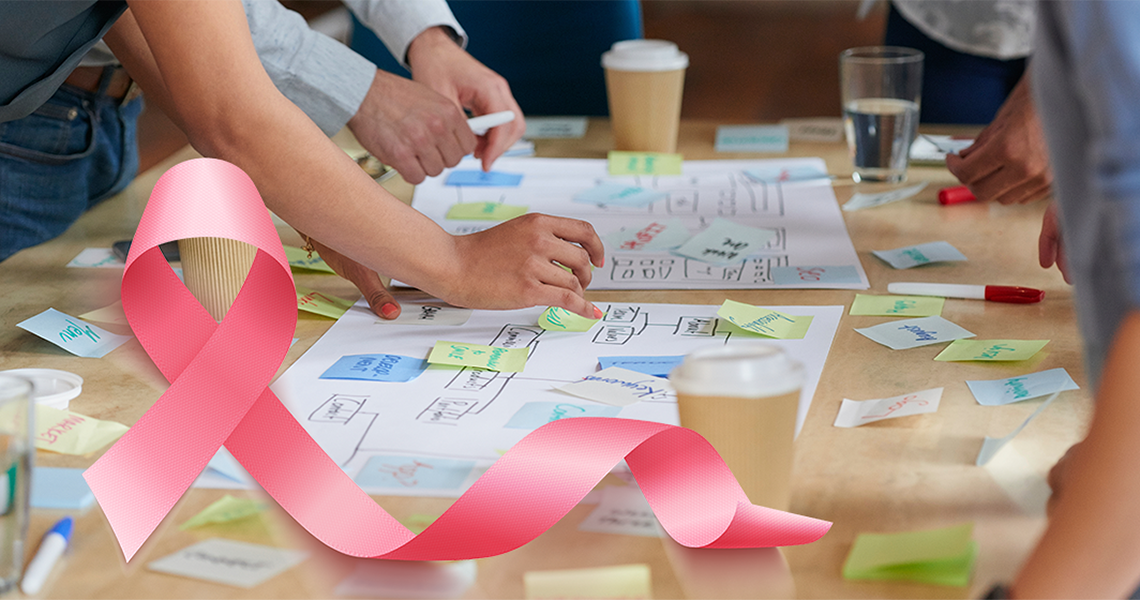The GW Cancer Center hosts a monthly breast cancer disparities work group to facilitate connections across the University between researchers, clinicians and members of the community, including survivors and caregivers. This informal group is designed to foster multidisciplinary collaboration and share important research, data, funding opportunities and upcoming events, with the goal of addressing breast cancer disparities in Washington, D.C.
Some recent developments that have come from the group since it began meeting in summer 2018:
- Aubrey Villalobos, MPH, DrPH(c) has been awarded a Jacobs Institute Schiffer Fellowship for her dissertation research project entitled “Breastfeeding Norms Among African American Women: Implications for Reducing Cancer Disparities"
- Sherrie Wallington, PhD and Mandi Pratt-Chapman, MA, PhD(c), associate center director for patient-centered initiatives and health equity at the GW Cancer Center, have been selected to submit a full proposal for a CTSI pilot award for a project on “Care Coordination in Patient Adherence to Breast Cancer Treatment: A Mixed-Methods Exploration of Reasons for Disparate Breast Cancer Mortality in the Nation’s Capital"
- Norm Lee, PhD, Kim Robien, PhD, Ami Zota, ScD and Becca Kaltman, MD have begun gathering preliminary data for a project to evaluate whether endocrine disrupting chemical exposures alter response to doxorubicin among women with triple negative breast cancers.
Members of the GW Cancer Center are invited to join the breast cancer disparities work group, which holds its next meeting on February 8 from 12:00 PM to 1:00 PM in the second floor conference room of the Milken Institute School of Public Health building. For additional information, please email krobien [at] gwu [dot] edu (Dr. Kim Robien), who organizes the group.




